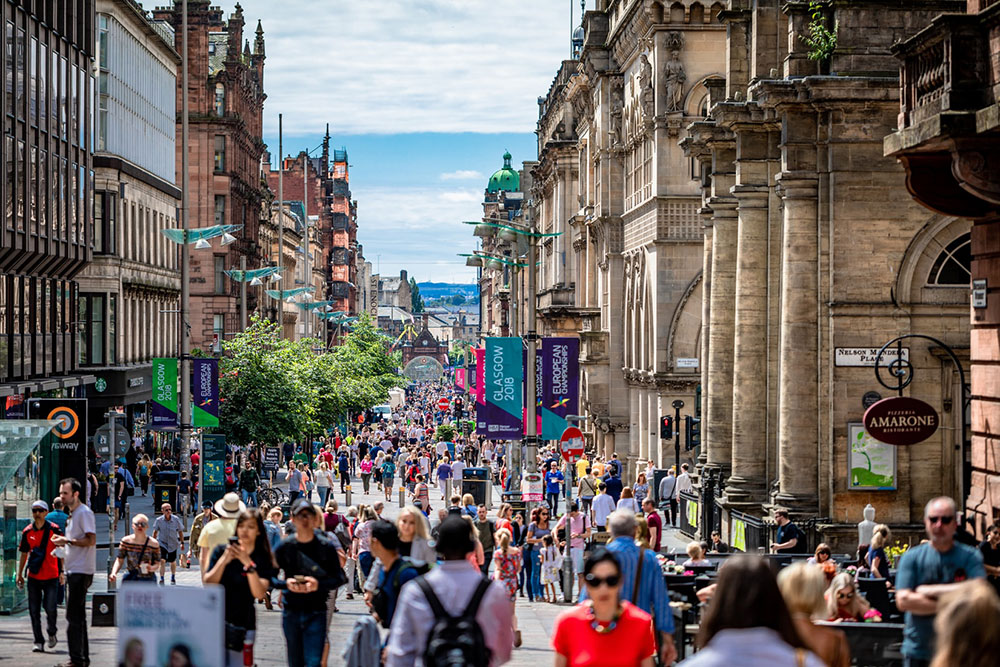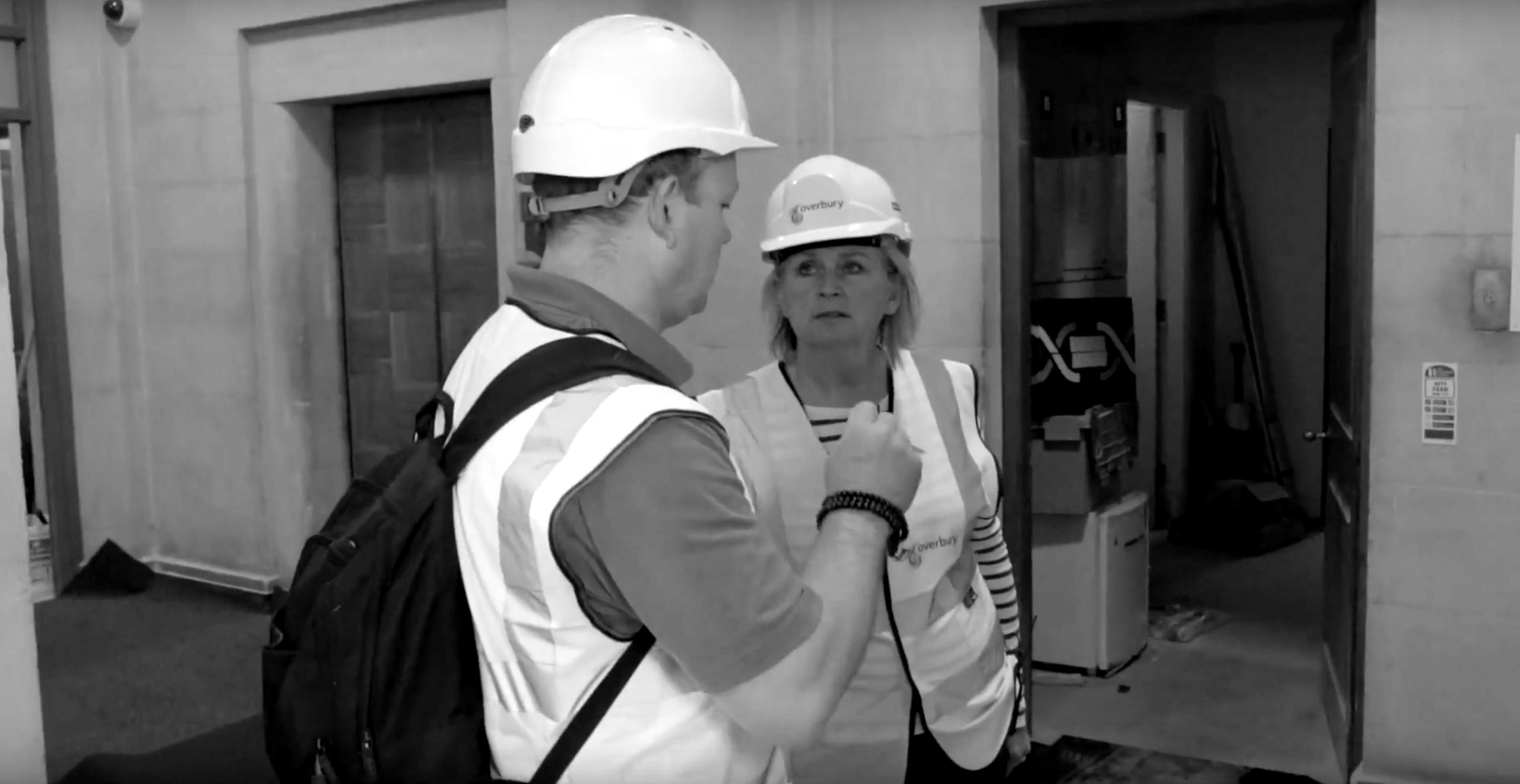— The PLACEmaking blog
Revitalising the high street with smart working
Author
tomDate
September 12, 2019The Centre for Cities thinktank has looked at 62 of the UK’s biggest cities and towns and found a strong link between high-skilled jobs and thriving high streets.
.
According to the Guardian, the thinktank has said that the government should help towns and cities improve skill levels among local workforces in order to attract businesses and generate well-paid jobs. Without the spending power these jobs provide, attempts to make high streets more attractive to consumers will fail, the report said.
How can smart working help?
We see smart working as a key contributory factor to the successful revitalisation of the high street. When we want the benefit of stimulating company, the buzz of social interaction and/or the advantage of exceptional technology connectivity we will walk or cycle to our nearby ‘Village Hub’: a drop-in space not owned or provided by a single employer but a highly serviced independently operated place, accessed on a pay-as-you-go basis. Not a concrete, glass and steel office but a far more relaxed, informal and social atmosphere – high street coffee shop meets library, meets workshop/techno lab, meets home kitchen. In the ‘Village Hub’ we will happily ‘work’ alongside other specialists from different sectors, industries and backgrounds, organically partnering with a selection and contracting with them on common enterprises for one or multiple customers.
We will have continuous real-time connectivity to colleagues and partners who are themselves in their local ‘Village Hub’. We don’t own anything but as consumers we have access to a range of different work settings that enable us to focus on our tasks, handing them back for others to use when we’re done. The providers host the environment, offering technical support plus a range of add-on services (child care, dog walking, etc), theming the ‘Village Hubs’ to attract different interest groups on different days. Larger towns will have multiple hubs, mixing specialists in response to opportunities or demands.

What will be the purpose of the traditional office?
The HQ has a purpose but perhaps we should think of it as the ‘Mother Ship’, with the aim of driving the business enterprise, focusing on customer demands and ensuring remote specialist outputs are aligned to those needs. The purpose of the mother ship is to be the brand flagship, driving business development and hosting continuous virtual engagement with its remote and contracted specialist resource base. In place of traditional management structures, managers are now specialist ‘navigators’, continually analysing real-time data predicting trends in customer needs and orchestrating specialists to develop new products and deliver customer solutions. The value of the ‘mother ship’ – unlike the HQ – is not about how big it is or how prominent its address, but in its connectivity to communications networks and highways.
When we visit the mother ship it will be for specific events. We may well do that physically, but we can now also do so virtually, represented by our own avatar which, as an extension of ourselves, will occupy space as if we were actually there: moving around, mixing and interacting with colleagues, partners or customers. The internal environment needed to host these events will be different: no longer offices filled with desks and sterile meeting rooms but informal, social and communal spaces and creative multi-functional communication-rich visually transforming ‘project areas’ that foster innovation and reflect the importance of interactive team-based problem solving. The platforms that we use will also change – out will go typed email and messaging, in its place will be voice-activated collaboration and conversation platforms.
What impact will this have on our lifestyles?
Avatars have no need to commute by car or train, so peak time mass transport in and out of city centres is no longer needed. As a result, the dynamics of where to live change, no longer dictated by commuter distance from an employer’s office but instead influenced by proximity to the local ‘Village Hub’, the type of interest groups or co-workers it attracts, who we want to engage with, and the community in which we want to live.
Well-located ‘Village Hubs’ add to already established community facilities and to places previously blighted by commuter travel patterns. Positioned on the high street rather than in now defunct business districts, the “Village Hub’ contributes to the creation of new forms of social cohesion as retail patterns change. Staying local means we adopt healthier modes of transport, whilst technology enables us to seek new opportunities on a national and global stage from the comfort of our local community. Improved technology connectivity and an emphasis on preventive health-care ensures we enrich community based services with real-time access to remote specialists directing our care. Meanwhile, virtual access to global institutions remodels the higher education sector, enabling young adults to stay within their community during intense learning periods and affordably delivering life-long learning across the community: re-establishing multi-generational, close proximity living and addressing many mental health issues associated with loneliness and isolation.
As a result, the intensity of demand for affordable living in concentrated places is balanced with opportunities to remain and invest in local but highly connected communities. Curiously the technology advancements of the future that we feared would harm our way of life could indeed offer us the opportunity to reconnect with what we value most – our friends, our families and our communities.
Subscribe to our mailing list
Let's Work Together
Office
Box 18, Boxworks
Clock Tower Yard,
Bristol BS1 6QH

